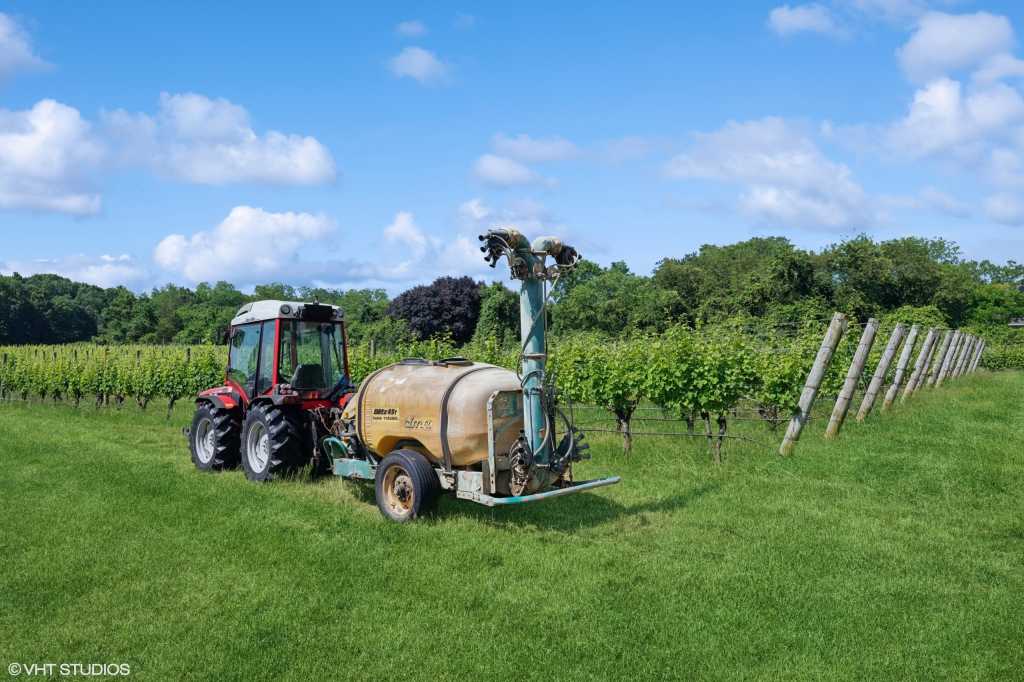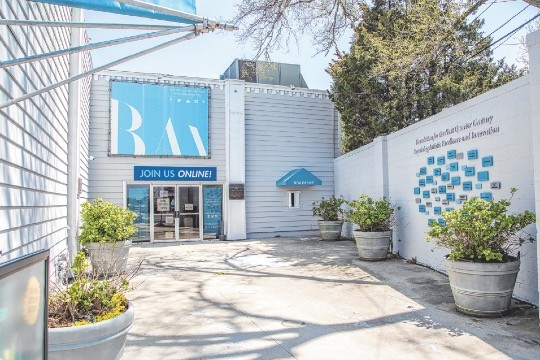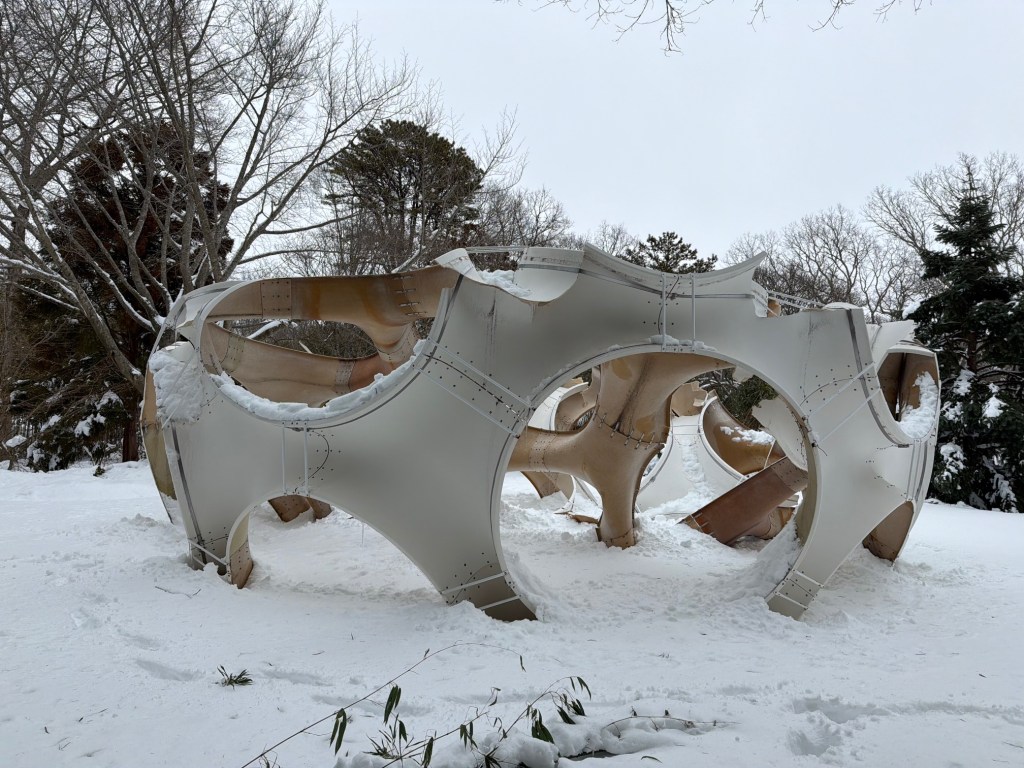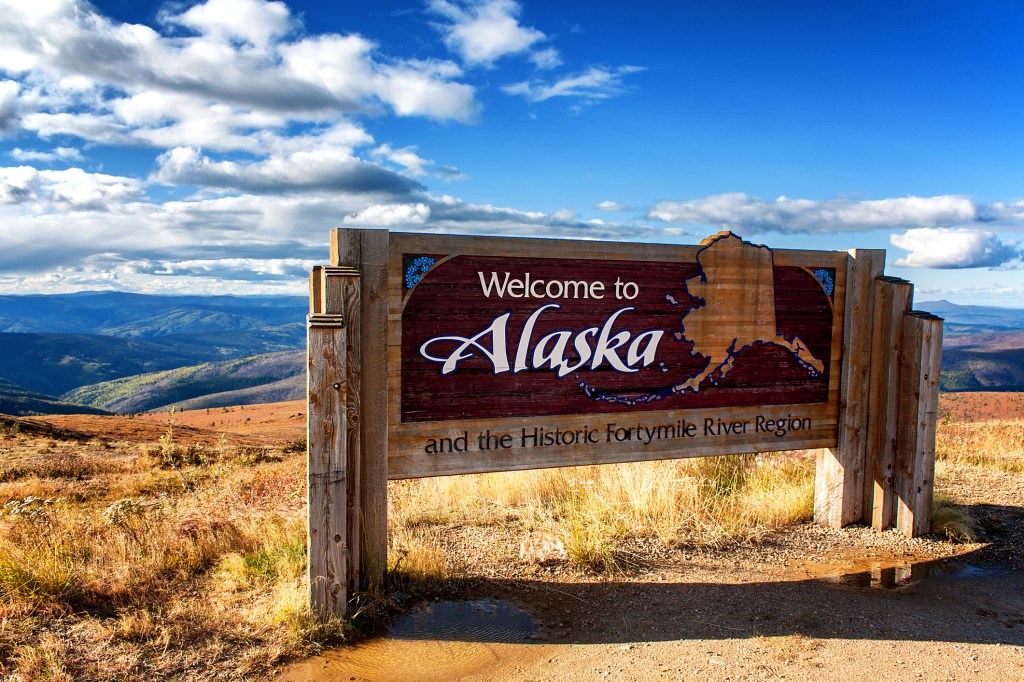82 Acres, A Stand and a Passion for Good, Fresh Produce
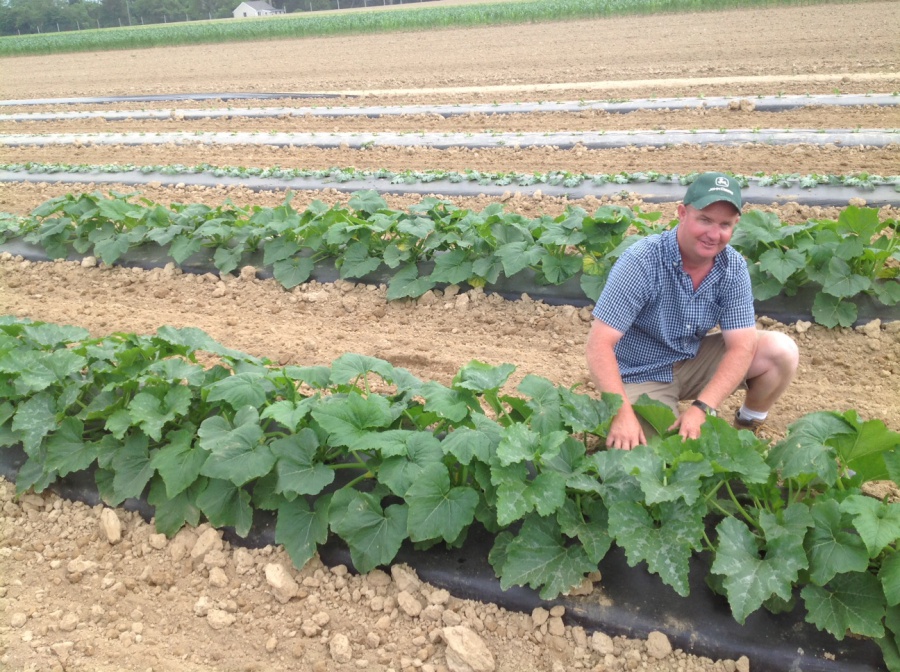
Adam and Beth Halsey, owners of Halsey Farm & Nursery on Deerfield Road in Water Mill, the 12th generation of Halsey farmers on the East End since 1747, know very well that in the Hamptons, people have the opportunity to choose their farm stand, just like they have the opportunity to choose their restaurants. You have to have a strength, theirs being the one-stop-shop for all local farm-fresh vegetables. And we mean all! Chefs and caterers come to the Halseys because of how they have put their farm together, going way beyond the basics. They grow 22 varieties of lettuce, eight varieties of sweet corn, seven of potatoes, four kinds of beets, three kinds of radishes, exotic greens like tatsoi and exotic herbs like epazote and papalo. So even if you never met the Halseys, chances are you are eating their produce at any fine restaurant or catering event in the Hamptons.
Another strength is in the way the Halseys’ produce is picked fresh, on demand. They don’t harvest a huge amount of produce and store it in a cooler; instead they work all day long, constantly picking.
“Sweet corn, when it’s in season, is picked in the morning and it’s picked again as soon as that first corn is gone,” says Adam Halsey. “We’re generally picking at six o’clock in the morning, 10 o’clock, right after lunch, and late in the afternoon. This is because as soon as the corn is picked, the sugar starts to turn to starch, so the corn is fresher the more recently picked it is.”
Sweet corn is planted every seven to ten days. When the last corn crop is an inch tall, they plant the next, which makes generally sixteen crops a season. Peas are planted every two weeks. Radishes are planted every four days, about 40 plantings of radishes. That’s because they come in and go by so fast from that ideal size.
Another strength is Halsey’s attention to size. “We try to have the freshest things picked as close to when you are going to eat them,” says Halsey, “and we are constantly moving from one crop to the next crop in order to guarantee that we’re picking the optimum size. All vegetables taste better at a certain size. Zucchini gets very seedy when it gets to be too big. Potatoes, like the red potatoes, are discarded if they get too big.”
When a crop is finished, the Halseys mow it, disk it up, which means chop up the green matter of the crop, and work it back into the soil. When an area is done for the year, they immediately plant a cover crop on that ground, which is more green matter that will grow there for the rest of the season, and be there until next spring, when they turn it back into the soil. The goal is to keep something on the land all the time. “We don’t use herbicides; instead we cultivate and we keep the soil moving,” explains Halsey.
Halsey started on the family farm at age four. Gradually, he did a little bit more in the fields through high school. When he came back from agricultural college (Delaware Valley College in Doylestown, Pennsylvania) he was on the farm full-time.
“It’s one of the best things that my parents made me do,” says Halsey. “I didn’t want to go away to school. I knew all I needed to know about farming. But I learned at college about different techniques, management practices, and I met my wife, Beth—probably the best thing I got out of college.”
Their children, Elijah (11), Lauren (9), and Evan (2) can do whatever they want to do, notes Halsey, but he wants to give them the same opportunity he had, and if they choose farming, he wants to have a successful operation for them.
In early spring, the Halseys’ greenhouses are stocked with perennials, annuals and vegetable plants. The retail store is open from April 1 through late June. The farm stand, which is open from the end of June to Thanksgiving and is self-service for a month after that, not only carries the field grown vegetables from the surrounding eighty-two acres, but also California privet hedge (more than one size, of course), local fruits and preserves and fresh cut flowers. Flowers in the greenhouse are grown from seeds, and are patent-protected varieties.
“The reason for growing flowers is that when my father was a potato farmer, my mother wanted some flowers for around the house. He went to buy them and thought they were a lot of money,” explains Halsey. “So he decided to build a small greenhouse. That’s how the greenhouse business started. He was a potato farmer with his father into the ’80s. When my grandfather died, my uncle (John Halsey, of the apple-peach-pumpkin-farm and The Milk Pail) and my father farmed together for a little while, and then they both went their own way, my uncle to the apples, my father to the greenhouses. My father wanted something to keep his good employees busy year-round, so he started planting some vegetables.”
By the way, mom and dad, Dot and Tom are still involved in the operation.
“It started very slowly, and we were very small. Farming is different today than from my father’s generation, even though my father was always one who wanted to have the latest technology for the greenhouse business, and as he started the vegetable business, he purchased new machinery. Later, I purchased another round of machinery. For instance, our corn planter is new and spaces the corn better. The transplanters are newer technology that reduces transplant shock, compared to the old machines. We use the industry standard that fits into our operation such as a one-time plastic mulch (raised plastic beds of food grade-approved plastic) to grow our crops on. It allows us to plant into an ideal environment for the plant, isolates the plant from weed composition, and allows us to feed the plant, not the weeds. We irrigate with drip irrigation that’s laid underneath the beds, so we’re feeding the water right to the plant.”
Halsey enjoys being local. He doesn’t want to go bigger, sell nationally, and ship out of the local region.
“People want to know their farmers,” says Halsey. “They want to know where the food comes from. People see us in the field and they are happy to get their produce close to home.”
Flying over the 82 acres is exhilarating, in even a small vehicle, seeing the rows of plants, one bigger than the one behind it, gives you a sense of time in nature. What kind of farming is it? Halsey sums it up: “I hate the term “traditional” farm, or “conventional” farm, because nothing that we do is traditional or conventional. We are a sustainable farm. We are very passionate about protecting our soil. Farmers are the best environmentalists out there, because the environment is our livelihood. The soil is what we make our living off of, so we want to be as nice to it as we possibly can.”
